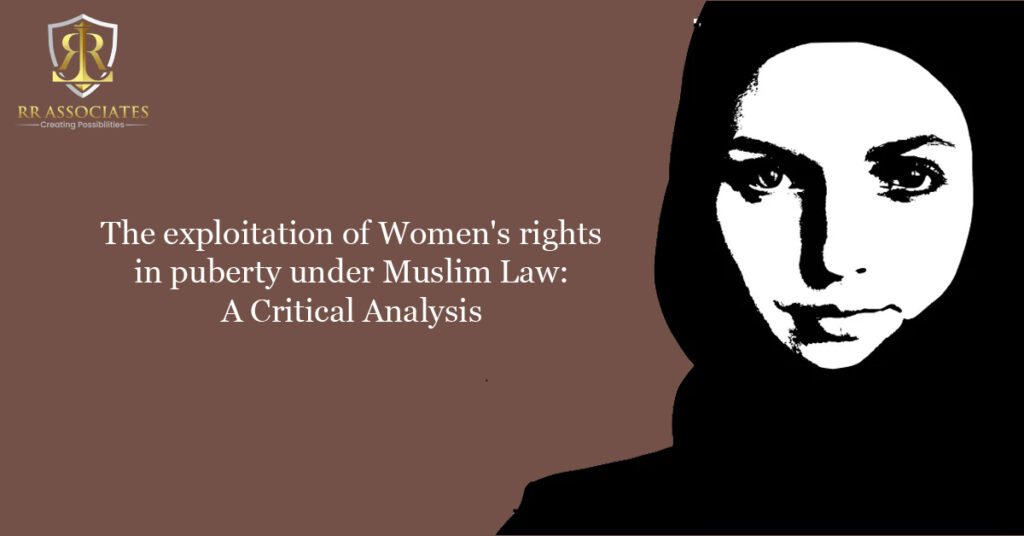Marriage, according to Islam, is a marital arrangement and an association that legalizes sexual intercourse between a woman and a man for the goal of child reproduction, the spread of love, togetherness, and the establishment of families, which are seen as integral units in society. Islam, like the Hindu faith, is a staunch supporter of marriage. Even so, the Muslim concept of marriage varies from the Hindu version, which holds that marriage is a ritual as well as a legal contract. Marriage, however, is a divine duty in Islam, according to certain scholars. Everyone should marry in order to fulfill his or her desire to have children legally.
According to Justice Mahmood: “Marriage among Mohammedans is not a sacrament, but purely a civil contract; and though it is solemnized generally with the recitation of certain verses from the Quran, the Mohammedan law doesn’t positively prescribe any service peculiar to the occasion.” “Marriage keeps a Muslim from committing heinous sins like “Zinnah.””
Since people have specific inclinations when they view the other gender, Islam has commanded a Muslim to marry early if he is reluctant or unable to handle sexual demands efficiently. Marriage only acts as an escape for sexual desires and manages them so that one does not become such a victim of one’s desires. Meeting the age of puberty, on the other hand, should not be the main factor in determining the requisite age for marriage. Other factors, such as a person’s general maturity, intellect, and ability to distinguish between good and evil, must be able to accept or disapprove of major life decisions.
Islam empowers Muslims to safeguard themselves and those in their care from all potentially harmful acts. Child marriage is, in fact, the reason why so many girls drop out of school and remain uneducated, exacerbating patterns of extreme poverty. Islam places a high value on education as a right, with parents and guardians given explicit directives to ensure that their children study. Early marriage may have been practiced in cultures where girls were not expected to investigate, find jobs, pursue self-benefit, or make any contribution to a broader society other than raising a family.
According to the Muslim Personal Law, a minor Muslim girl who is less than 18 years old and has reached puberty is allowed to marry anybody, according to a decision issued by the Punjab and Haryana high court. In its decision, the court pointed to Article 195 of Muslim Personal Law, which states that once a Muslim girl reaches puberty, she is competent to enter into a marriage contract with a person of her choosing. For Muslims, who marry under the Muslim Personal Law (Shariat) Application Act, the minimum age for marriage, both for men and women, is the age of puberty, which is assumed to be 15 years.
The applicants, a 36-year-old man, and a 17-year-old girl, married on January 21, 2021, according to Muslim customs but against the preferences of their family members. Justice Sarin stated that the applicants’ basic rights could not be violated because their family members were opposed to the marriage. While hearing a petition seeking protection for a couple who married without the agreement of the girl’s parents, the Delhi High Court ruled that a girl who has reached puberty can marry without the consent of her parents under Muslim law. According to Justice Jasmeet Singh, “Under Muslim law, a girl who reaches puberty can marry without the approval of her parents and has the right to live with her spouse even if she is otherwise a juvenile. The husband is exempt from the terms of POCSO.” The decision went on to say that the state has no say in a girl’s personal space if she marries of her own free will and is pleased.
This statement was given by the bench while hearing the petition of a couple who married on March 11. When the couple married, their daughter was 15 years old and the male was 25 years old, according to the parents. Article 195 of the Muslim Personal Law says, “Every Mohammedan (Muslim) of sound mind, who has attained puberty, may enter into a contract of marriage. Lunatics and juveniles who have not reached puberty may be legally married by their respective guardians. If a Mohammedan who is (of) sound mind and has reached puberty marries without his permission, the marriage is null and invalid. Islam does not specify an age limit for marriage, either for men or for women. However, Islam only encourages young people to marry. That a kid can avoid sin by marrying early. Sharia law requires that persons entering into marriage not only have completed puberty but also have the full maturity to recognize and satisfy their rights and duties in marriage. Islam also permits Muslims to follow the laws of the place in which they live, and most nations, including Muslim ones, define 18 as the minimum legal marriage age, with some allowing marriage before this age with parental agreement. Marriage before the age of 18 can pose serious health difficulties for women, especially those who become pregnant and have children at a young age. It may also have an adverse effect on their physical and cognitive well-being, as well as the health of their children. Child marriage is associated with higher rates of sexually transmitted infections (including HIV) and early pregnancies because child brides are often unable to negotiate access to safe sex and medical care. Child marriage is associated with higher rates of death resulting from childbirth, unwanted pregnancies, pregnancy termination and malnutrition in the offspring.

